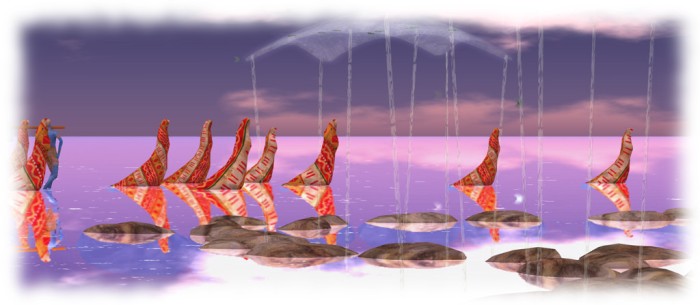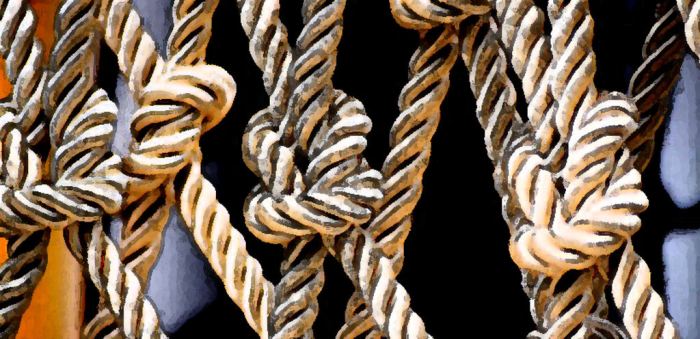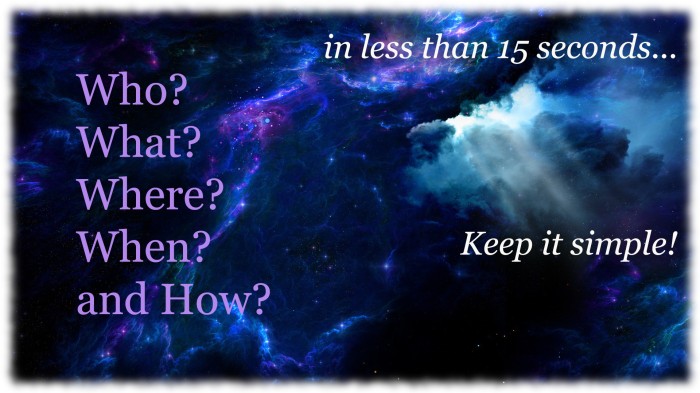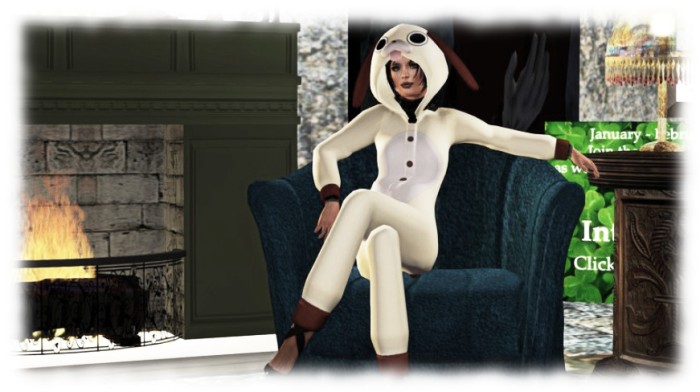
By Caledonia Skytower
Last October 24th’s article in Wired by Rowland Manthorpe, entitled Second Life was just the beginning. Philip Rosedale is back and he’s delving into VR ignited the usual round of reactions from fans and critics of Philip Rosedale, Ebbe Altberg, and virtual worlds in general. Guaranteed, there would be opinions and plenty of “should-haves”, “could haves”, and speculations about machinations we may never fully understand, and to which uncertain credit can be given.
Philip Rosedale’s particular dream of virtuality is reflected in Second Life, written as deeply as the original code, which continues thirteen years after the first pixels clicked on for the public. As such, it seems like a democracy and the term “resident’ only reinforces that. Let’s be clear, residents in virtual worlds are not citizens in democratic societies, we are consumers. We don’t have any more of a “right to be heard” than any other consumer does by a corporation or creator.
Smart companies listen to their consumer base – it is called good business. Linden Lab has waxed and waned on that over the years, better more recently I think. Yet no one will ever know their product the way they do. No one will understand their finances, their market standing, the pressure of industry innovation and its impact on their company the way they do. As a consumer, with a free account, the Lab doesn’t owe me a vote in their decision-making process. Virtual worlds are not a public entitlement. Yet it is surprising how many people disagree with that – passionately, vitriolically disagree. The funny thing is, that state of entitlement has been there as long as I have been in SL.

I entered Second Life in 2008, which makes me older than some, not as old as others. In those eight years I have seen a procession of public doomsday fests boil up to a frenzy, and then cool down. Always, the perceived calamity is touted as the Lab’s fault. Even at five years old, Second Life was doomed, dying, already deceased. An average of 67,000 users on-line from all over the world at any one moment, which would fill my local “home field”, Centurylink Field in Seattle, to capacity but with a lot fewer parking hassles. Think of that: a football stadium full to the brim twenty-four hours a day. Here we are in 2016 and the averages have dropped to the low 40,000s. That’s still enough for the food vendors to make a tidy profit on game day! And when I think of the things that have happened in those eight years, doom, death, and extinction are not what come to mind:
- There have been some fascinating educational studies, my favourite being the National Science Foundation funded study in a collaboration between Texas A & M and the Florida Institute of Technology involving college chemistry students and on-line learning.
- There is incredible work ongoing with the disabled and people suffering from different medical conditions.
- Charitable organizations have benefited from the fund-raising efforts that engage a global volunteer and donor base in one of the most cost-efficient fund-raising endeavours in existence. Relay for Life in SL has raised 2.7 million U.S. dollars for the American Cancer Society in just a decade.
- Businesses have grown, with individual content creators stretching their wings and flexing their artistic muscles: everything from publishing to fashion, animations, buildings, and furnishings of all kinds.
- There have been some amazing creative achievements using the virtual world as a dimensional palette, too many to name.
In all cases, some enterprises have endured, and some have termed out. But there has never been a lack for them. There is always someone charging the fence of what is possible in the platform. Where the platform limits them, people have found workarounds that are clever and industrious.

The Wired article refers to a 2006-ish review of user analytics; “Second Life was a retreat for escapists, an outlet for pent-up creativity – a place, as Rosedale once put it, for ‘smart people in rural areas, the disabled, people looking for companionship.'” Hello! Just by mentioning rural areas and the disabled you just hit upon a huge under served percentage of the general population. Virtual worlds break down barriers of proximity, and of ability. That may not be Rosedale’s vision of egalitarian virtuality, but it is a notable accomplishment nonetheless.
Phillip Rosedale is a sprinter. He gets excited and he sparks new ideas, opens up the Pandora’s Box of possibilities and lets the creativity flow. He sees things and expresses himself in terms that are limitless. Sprinters are essential to innovation. But you can’t sprint forever. At some point that spark has to transition into something sustainable, based on something more than enthusiastic creative juices.
That’s where someone like Ebbe Altberg comes in. No less creative, Ebbe’s temperament is different. He uses limitations to propel rather than obstruct. He is a distance runner – eyes on the long road, not so dazzled by the big picture that he can’t keep moving forward. Healthy industries need both those who can sprint, and those who can sustain distances. We need them both, and the future of virtual worlds is more promising for the different directions they are taking.
Nothing lasts forever. In that, Second Life is not unique. It’s possible that those early delvers into on-line virtuality in 1995 thought that Worlds Chat would last forever. Did they even think about Virtual Reality in those days? Yet with the bubble of VR expanding before our eyes, people are still feeling threatened in what has been one of the most successful, stable endeavours in the evolution of this form of social engagement. Even though it still turns a profit for its owners, people are determined that Linden Lab has nothing better to do than throw over its consumer base. In some ways, the very openness and lack of restrictions that we value – the legacy of Rosedale – is our own worst enemy.

So, what have you been doing with your virtual life? Have you been learning? creating? exploring? Have you used the tool – because that’s what it is – to make your life as a whole enriched? Because in a free and open community, the quality of life is defined by the creativity and industry of that community.
We all had that thrilling moment when we got past the initial boggle-ment of functioning in the platform, and discovered that our avatars could be a reflection of our emotional selves. I could wear high heels and run on the sand! I could fly, walk among ancient ruins, meet and work with people who will never breathe the same salt water, pine-scented air that I do.
I suggest that people get burned out on Second Life for any number of reasons. Some like to blame it on the Lab, and maybe there is some truth in that. But people also get bored with the same old thing. For those who do not see SL as a tool, but as a game, it will always become passé at some point – when something newer, faster, and sexier comes along. Whose fault is that? Is it really the Lab’s fault that they cannot alter enough decade-old code to keep people’s attention? Especially when you know that the entrenched in SL will squawk loudly and painfully at any change that disrupts their status quo. So the very stability that we crave works against us, for once the thrill of virtual freedoms are over, those who are consumers only will grid fade.
So, we come back to this: what are you doing the rest of your Second Life? The potential for personal and communal enrichment has not been tapped out. Will virtuality expand to embrace the entire earth’s population as Rosedale envisions? Probably not. Someday, the ship of Second Life will hit the iceberg. You get to decide what you’ll do now, and when that happens. Will you wring your hands and cry out “the end is nigh” as you may well have been doing for years? Will you lob deck chairs at the lifeboats screaming “I told you so!”? Or will you take your place with the band and go down profoundly playing “Nearer My God to Thee”? In an open community, you have a choice about how you conduct your virtual life, and what you make of it.

Years ago a well-respected teacher and legislator in my community was known for saying “life is like a sack lunch. If you pack it carefully with all your favourite things, lunchtime with be a joy. If you just carelessly throw any old thing you find in it, there’s a high probability that something will not be very tasty.” Your virtual living is no different from the rest of your life. If you treat it as a recreation, you are destined to get bored with it, grow out of it, have it lose relevance, and you will move on. That’s no one’s fault. That’s life. If you treat virtuality as an opportunity, no platform, no grid format, no change in terms of service will get in your way because you will always be questing, always be seeking, always be looking for new challenges.
The one notable difference between corporeal and virtual lives will always be the white X in the red box in the corner of your viewer. You can always turn your virtual life off, re-invent it, reboot it, or just walk away and let it die. The repercussions are limited. In the corporeal world, such flexibility of change is much harder to manage, and you only really hit that big X once.
















